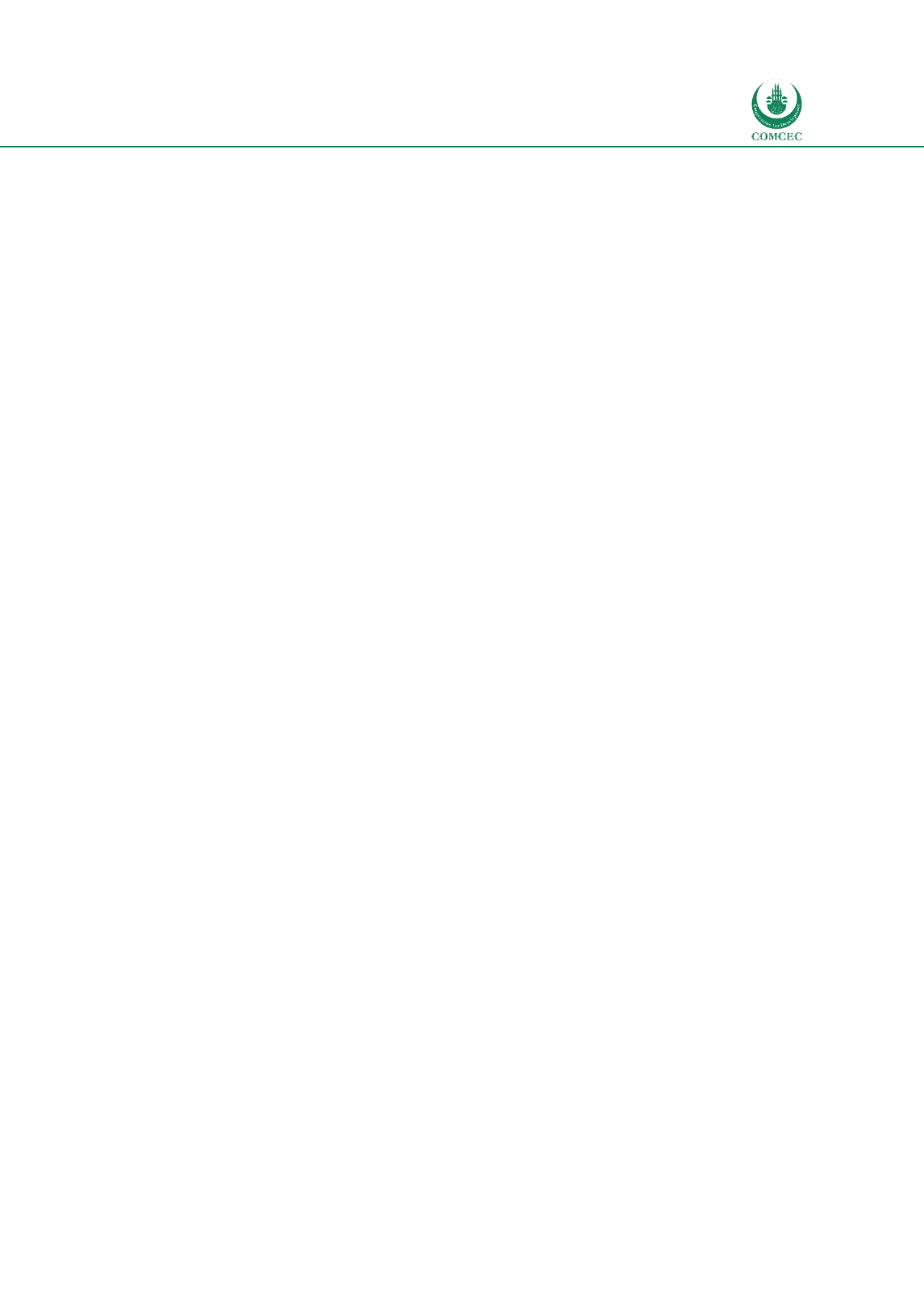

National and Global Islamic Financial Architecture:
Prolems and Possible Solutions for the OIC Member Countries
93
4.5.1. Legal Infrastructure
Supporting Islamic Finance Laws
Nigeria has no dedicated laws for Islamic finance. However, the legal framework for Islamic
finance was derived from the existing conventional finance laws by leveraging on some
provisions to establish Islamic financial institutions. The main laws that affect the industry
were: Company and Allied Matters Act (CAMA) 1990, Banks and Other Financial Institutions
Act (BOFIA) 1991, Central Bank of Nigeria (CBN) Act 2007, Investment and Securities Act (ISA)
2007, National Insurance Commission (NAICOM) Act 1997, and the Nigerian Deposit Insurance
Act 2006.
CAMA 1990 requires corporate entities to register themselves before operating as legal
business organizations. They should also satisfy the relevant provisions made in BOFIA 1991,
the CBN Act 2007, and the Regulation on the Scope of Banking Activities and Ancillary Matters,
No. 3, 2010 for it to function as a bank. Specifically, the provisions of Sections 2(1); 23(1); 52;
55(2); 59(1)(a); 61 of BOFIA 1991 and 33 (1) (b) of the CBN Act 2007 require that no entity
should carry out any banking business in Nigeria except if it is duly incorporated in Nigeria and
holds a valid banking license. The Act empowers the Governor of the CBN to make rules,
regulations and issue guidelines for the operation and control of all institutions under the
supervision of the CBN. The provisions also empower the CBN to supervise and regulate the
activities of specialized banks and also exempt profit and loss sharing banks from the Act’s
provisions. Furthermore, Section 4(1)(c) of the Regulation on the Scope of Banking Activities
and Ancillary Matters, No. 3, 2010 permits only three types of banks that can be licensed and
operated in Nigeria and these are: Commercial, Merchant and Specialized banks, which include
non-interest banks, microfinance banks, development banks and mortgage banks.
Section 7 of the NAICOM Act 1997 empowers the Commission to establish and approve
standards, conditions and warranties applicable to all classes of the insurance business in
Nigeria. Based on this provision,
takaful
businesses become feasible.
The provisions of sections 13, 14, 154, 222, 223 and 313 of the Investment and Securities Act
2007 provide that the Securities and Exchange Commission (SEC) has powers to register and
regulate Securities Exchanges, corporate and individual capital market operators, venture
capital funds and collective investment schemes in whatever form; register bonds issued by
the Government; establish specialized departments for the purpose of regulating and
developing the Nigerian capital market; and empower the Commission to make rules and
regulations that will ensure the smooth workings of the capital market. Under these
provisions, the establishment of the Islamic Fund and listing of the
Sukuk
by SEC becomes
possible.
Tax regimes and impact on Islamic finance
For the effective administration of taxes, the Federal Inland Revenue Service (FIRS) Act was
enacted and passed into law in 2007. Sections 8(1)(c)and(d) and 61 of the Act empower the
FIRS to collect, recover and pay to the designated account any tax, review the tax regimes, as
well as make rules and regulations which it considers necessary to bring into force the full
effect of the provisions of the Act. Based on these provisions, the FIRS issued guidelines on tax
implications for non-interest banking in Nigeria in 2013. The guidelines was meant to address
















